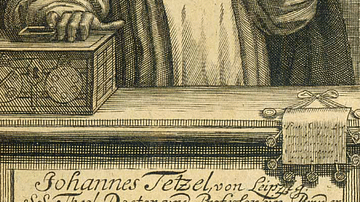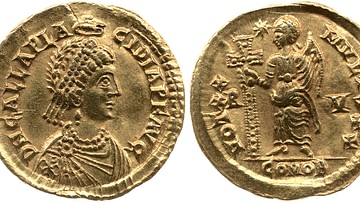Search
Search Results

Definition
Pilgrimage of Grace
The Pilgrimage of Grace is the collective name for a series of rebellions in northern England, first in Lincolnshire and then in Yorkshire and elsewhere between October and December 1536 CE. Nobles, clergy, monks, and commoners united to...

Article
1204: The Sack of Constantinople
In 1204 CE the unthinkable happened and Constantinople, after nine centuries of withstanding all comers, was brutally sacked. Even more startling was the fact that the perpetrators were not any of the traditional enemies of the Byzantine...

Video
How to date an Artefact | Tudor Pendant of Henry VIII & Katherine of Aragon | Curator's Corner S8 E2
How does one go about dating an artefact that was found in a field in England by a metal detectorist? And by dating we’re not talking dinner and a movie with your favourite curb chain… As part of the Treasure process in the UK, artefacts...

Video
Doctrine of Discovery: What Is It and Why is Pope Francis Being Asked to Denounce It?
Pope Francis is facing calls to rescind a centuries-old policy called the ‘Doctrine of Discovery,’ stemming from a series of edicts, known as papal bulls, dating back to the 15th century, which states that white European nations "discovered"...

Definition
Council of Trent
The Council of Trent (1545-1563) was a meeting of Catholic clerics convened by Pope Paul III (served 1534-1549) in response to the Protestant Reformation. In three separate sessions, the council reaffirmed the authority of the Catholic Church...

Definition
Jan Hus
Jan Hus (also John Huss, l. c. 1369-1415) was a Czech philosopher, priest, and theologian who, inspired by the work of John Wycliffe (l. 1330-1384) challenged the policies and practices of the medieval Church and so launched the Bohemian...

Definition
Johann Tetzel
Johann Tetzel (l.c. 1465-1519) was a Dominican Friar who became famous as one of the most effective indulgence salesmen and who inadvertently inspired the Protestant Reformation when Martin Luther (l. 1483-1546) wrote his 95 Theses protesting...

Definition
Albigensian Crusade
The Albigensian Crusade (aka Cathars' Crusade, 1209-1229 CE), was the first crusade to specifically target heretic Christians - the Cathars of southern France. Not successful in repressing the heresy, the on-off campaigns over two decades...

Definition
Galla Placidia
Galla Placidia (388-450 CE), the future empress, was the half-sister of the Westen Roman emperor Flavius Honorius (r. 395-423 CE), and the daughter of Theodosius the Great (r. 379-395 CE). She was taken hostage by Alaric during the sack of...

Definition
Fifth Crusade
The Fifth Crusade (1217-1221 CE) was called by Pope Innocent III (r. 1198-1216 CE) with the objective, like previous crusades, of recapturing Jerusalem from Muslim control; only this time the strategy was to weaken the enemy by first attacking...